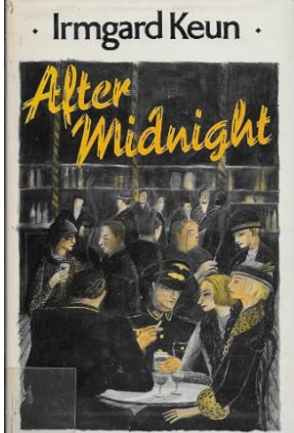Lisa Tuttle - Encyclopedia of Feminism
Lisa Tuttle. Encyclopedia of Feminism. (United Kingdom: Arrow Books Ltd, 1987).
This is a comprehensive reference work that provides information on various aspects of feminism and its impact on various fields, including literature and theatre. There is much to explore here. It has introduced me to women, publications, and collectives about whom I was not previously aware.
The women writers to follow up include: Alta, Jane Anger, Susan Griffin, June Jordan, Alison Fell, Judy Grahn, Marlyn Hacker, Judith Kazantzis, Audre Lord, Lyn Lifshin, Robin Morgan, Pat Parker, Marge Piercy, Adrienne Rich, and Alice Walker. Alta started Shameless Hussy Press (1969 - 1989). She wrote poetry collections (Letters to Women - 1970, Burn This and Memorise Yourself - 1971, No Visible Means of Support - 1972, Momma: A Start on All the Untold Stories - 1974, I Am Not a Practicing Angel - 1975) and started an art gallery. I am particularly interested in the work of May Swenson, who was an American poet and playwright. She was known for her innovative and playful approach to language. So far, I like her playing with form and her use of concrete poetry.
These quotes are helpful:
Some of the aims of literary criticism are:
1. To search for an underlying, consistent female tradition
2. To uncover and interpret the symbolism specific to women’s writing so that it does not seem as incomprehensible or unimportant as it might when judged by male standards and symbols
3. To rediscover ‘lost’ works of the past
4. To reassess male writers form a feminist standpoint
5. To learn to resist the sexism in a text - while admitting it may be important or valuable in other ways
6. To become aware of the politics of style and language (p. 184).
A list of contemporary ‘life-changing’ novels of particular interest includes: The Golden Notebook by Doris Lessing; The Odd Woman by Gail Godwin; Small Changes and Braided Lives by Marge Piercy; Kinflicks by Lisa Althar; Memoirs of an ex-Prom Queen and Burning Questions by Alix Kates Shulman; Surfacing and The Edible Woman by Margaret Atwood; Rubyfruit Jungle by Rita Mae Brown; and A Piece of the Night by Michele Roberts.
This quote, about the intentions and purpose of feminist poetry, is under the entry on Poets and Poetry:
As Jan Clausen suggested in her essay ‘A Movement of Poets: Thoughts on Poetry and Feminism’, feminists usually have certain expectations of their poetry: the feminist poem should be both useful and accessible. It is political (in the largest sense of the word), usually written from personal experience without distancing techniques, and written explicitly for an audience of women. Janet Monefiore has said that the task of feminist poetry is the work of redefinition: to combat sexist language and create feminist meanings; and Adrienne Rich has frequently written, in poems as well as prose, of the need for women to develop a new language, and whole new poetry’ (p. 251).
This book supports an awareness of the rich history of women’s creative work, which was once acclaimed and valued but has been forgotten. It requires a tracing over or reinforcement. It needs to be woven into the history of women. I have already bought, but not yet read, many of the books by these writers.



Comments
Post a Comment